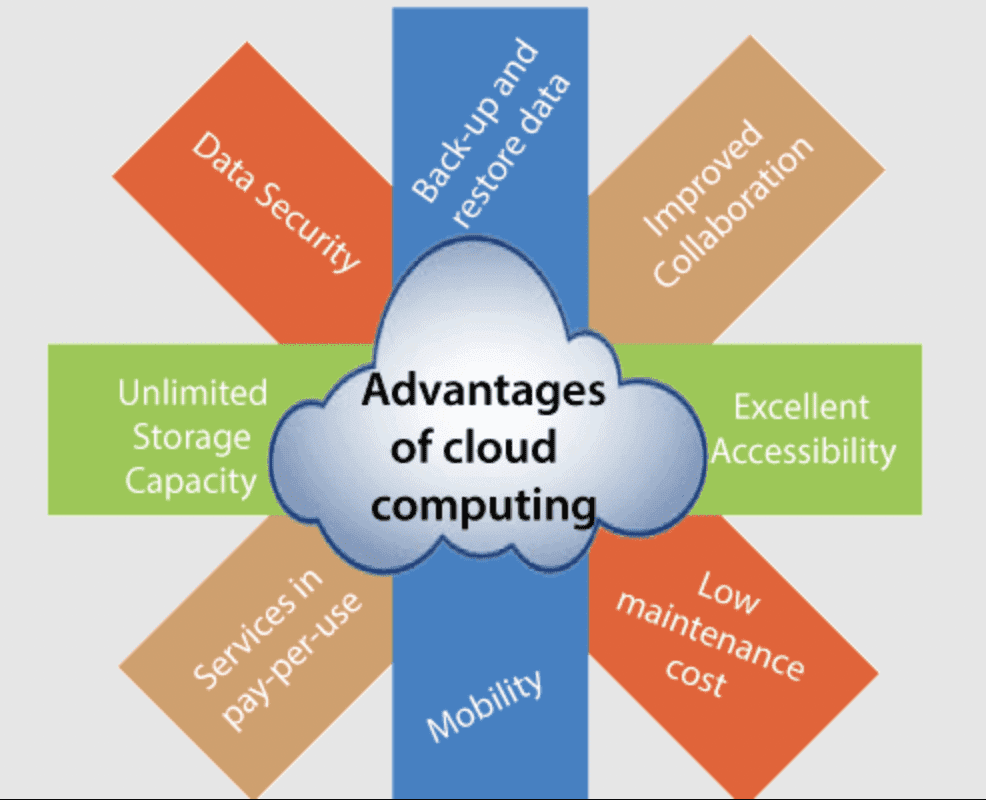Migrating data to the public cloud is a good idea for many businesses in the world today. It comes with a slew of benefits, including top-of-the-line resources, and can help company leaders outsource data storing options in a cost-effective way.
From small projects to large-scale deployments, the public cloud offers an extensive range of solutions for all kinds of businesses. In this blog, we’re going to look at some of the benefits of public cloud computing, and how they compare and contrast to private cloud options.
The cloud is constantly gaining popularity in all areas of business around the world. In fact, according to Zippia:
- 94 percent of enterprises use cloud services
- 67 percent of enterprise infrastructure is cloud-based
- 92 percent of companies use multi-cloud strategies in place or in the works
What Is The Public Cloud?
Google describes the public cloud as “an IT model where public cloud service providers make computing services…available on-demand to organizations and individuals over the public internet.”
These computing services include computing and storage, applications, and environments for development and deployment. The public cloud provides outsourced resources that are cost-effective and easier for businesses to allocate outside of their company. This is a hands-off approach where systems and potential issues are managed by IT professionals.
What Is A Private Cloud?
In contrast to the public cloud, a private cloud is a cloud computing service where the hardware and software applications and resources are allocated and only accessible to a single organization, individual, or team of customers.
A private cloud uses an on-premises infrastructure, which generally needs to be managed by an in-house IT team that works for a certain company or organization. Private clouds are often used by healthcare organizations or companies with high levels of sensitive data, as they can be more secure in certain cases. However, this generally requires expertise to monitor and manage the private cloud.
5 Benefits of Public Cloud Computing
1. Lower Costs
Using a public cloud method means you don’t need to spend money on hardware or software. Plus, you can scale your service based on your specific needs and only pay for that service without any additional costs.
2. No Maintenance
Public cloud providers handle all necessary maintenance in the event an issue or cyber threat is looming. This provides peace of mind as businesses don’t have to scramble to fix any potential issues that arise; the public cloud providers handle them.
3. Scalability
Using a private cloud often demands an all-or-nothing approach; you have to purchase all the software and hardware,and pay for any potential maintenance costs or pay an in-house team to monitor potential issues. With the public cloud, you can scale your services to your company’s exact needs, and increase or decrease your services accordingly.
4. Reliability
The public cloud has grown exponentially, and a vast web of networks allows for reliability in security and performance against potential threats or failures. Many companies trust their data in the public cloud, and for good reason.
5. Easy Setup
Migrating to the public cloud is a much easier solution than monitoring your own private cloud network. You don’t need the expertise to monitor and manage it or to familiarize yourself with the hardware and software setups. Instead of hiring an in-house team to handle these challenges, consider the public cloud for convenience.
Final Word
In short, the public cloud is a hands-off, more straightforward way of migrating and storing data. If you need the highest levels of security possible and have the expertise and manpower, consider a private cloud. But otherwise, the public cloud is a safe and convenient way to manage your data.






